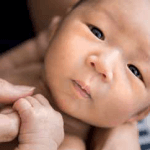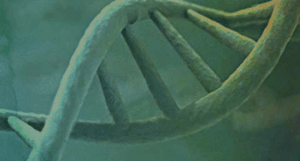FERTILITY ROAD ARTICLE
Stopping the Cycle: Preventing Familial Cancer With Preimplantation Genetic Diagnosis

Emily Mounts, MS, CGC, genetic counselor and Director of Genomic Services at Oregon Reproductive Medicine, leads the largest clinical genomics program of any US IVF clinic and helps explain how IVF with preimplantation genetic diagnosis can help reduce the chance of passing on a known genetic cancer risk.
Genetic technologies are rapidly reshaping many areas of medical practice, but perhaps no field has been more widely impacted by these advances than cancer. Dramatic improvements in diagnosis and monitoring of cancer have been facilitated by the genomic revolution, and treatments now in development hold immense promise.
Meanwhile, advances in DNA testing are allowing more patients with a personal or family history of cancer to identify whether they have a hereditary form of cancer and, importantly, to understand the risk for their offspring to be similarly affected. Yet patients and clinicians alike are frequently unaware of one of the most powerful tools to prevent cancer from persisting in families: preimplantation genetic diagnosis (PGD) with in vitro fertilization (IVF).
While most patients accessing fertility treatments such as IVF are doing so for assistance in becoming pregnant, preventing the transmission of cancer to future generations of a family is another compelling application of IVF.
What is PGD?
 PGD is a reproductive process that allows potential parents to avoid passing certain hereditary disorders to their offspring. Patients undergo in vitro fertilization (IVF), a process in which eggs are retrieved from a woman’s ovaries and fertilized with sperm in the lab. The resulting embryos develop in a sterile and womb-like environment in the laboratory for five to six days, after which a handful of cells are safely removed from each embryo.
PGD is a reproductive process that allows potential parents to avoid passing certain hereditary disorders to their offspring. Patients undergo in vitro fertilization (IVF), a process in which eggs are retrieved from a woman’s ovaries and fertilized with sperm in the lab. The resulting embryos develop in a sterile and womb-like environment in the laboratory for five to six days, after which a handful of cells are safely removed from each embryo.
The cells undergo genetic testing that has been customized to accurately detect the family’s particular mutation(s). An embryo identified as not having inherited the genetic condition is transferred into a woman’s uterus in the hopes of achieving pregnancy. Any resulting children are at very low risk of having inherited the familial gene mutation(s).
In experienced hands, PGD is usually straightforward and low-risk. Current expert consensus is that there are few risks to the embryo, the resulting fetus/baby, or the mother. While rare misdiagnoses have been reported and patients should understand this possibility, the overall accuracy of PGD is high and the vast majority of patients will have children who are free of the tested condition.

What is a hereditary cancer syndrome?
Most cancer is sporadic, meaning that it happens by chance. About 10% of cancers are related to hereditary cancer syndromes. Individuals with a hereditary cancer syndrome have an inherited predisposition to develop certain types of cancer. The risk of developing cancer in these individuals is significantly higher than in the general population.
Hereditary cancer syndromes are caused by harmful variants, or mutations, in genes that usually prevent cancer. These genetic variants are typically inherited in a dominant pattern. This means that first-degree relatives (parents, siblings, and children) of an affected individual each have a 50% chance to also have the genetic variant and cancer predisposition.
Features that suggest that a family has a hereditary cancer syndrome include having multiple relatives with the same or related type of cancer, multiple affected generations, young ages of diagnosis, or an individual with multiple primary cancers. Individuals with hereditary cancer syndromes are typically at a high risk (50%) of passing on the condition, and often have a strong desire to preclude their children from living under the threat of cancer.
Does my family have a hereditary cancer syndrome?
Genetic counseling and testing is available for families with features suggestive of hereditary cancer syndromes. In some cases, testing for hereditary cancer genes may be offered in lower risk cases without the typical “red flags” that indicate that such a gene may be present.
For those wondering whether they have a hereditary cancer syndrome, genetic testing is typically done through either a blood test or a saliva test. If this testing identifies a genetic variant that is linked to the specific cancer in the family, other family members may choose to be tested to determine whether they also have an increased risk to develop cancer. There are pros and cons to genetic testing, which are best discussed with a genetic counselor or physician in the context of one’s medical and family history and family planning wishes.
Patients who are recognized to carry a heritable form of cancer-based on DNA testing most often have a 50% chance of having a child who inherits their mutation. Knowing that their child could experience the same medical challenges other family members with cancer have endured, such patients, when in their 20-40s, are increasingly choosing to invest in IVF with PGD to avoid transmission of the condition to the next generation.
Patients who have family histories suggestive of a cancer syndrome should consider having cancer genetic counseling prior to conceiving or beginning a fertility treatment process in case they should wish to consider PGD.
For which conditions can PGD be performed?
PGD can be performed for hundreds of conditions – including hereditary cancer syndromes – for which there is an identified, serious, disease-causing mutation.
Examples of hereditary cancer syndromes for which PGD has been performed:
- Hereditary Breast and Ovarian Cancer (BRCA1 and 2)
- Lynch Syndrome (Hereditary Non-Polyposis Colon Cancer)
- Familial Adenomatous Polyposis
- Hereditary Diffuse Gastric Cancer
- Li-Fraumeni Syndrome
- Multiple Endocrine Neoplasia
- Von-Hippel Lindau
- Retinoblastoma
Growth of PGD
From the inception of PGD in 1989 until recently, PGD was primarily used for rare congenital genetic disorders. This led to a widespread belief that PGD is an obscure, seldom-used, even boutique treatment option.
But the increasing use of DNA testing in many medical specialties is creating a new, broader segment of PGD candidates. This includes individuals with hereditary cancer syndromes and other adult-onset conditions, who are increasingly aware of the risk of disease transmission to their children and are accessing the technology.
Recent improvements in embryo biopsy and vitrification (freezing), IVF success rates, and PGD accuracy are all contributing to a wider acceptability of and use of PGD.
 Why do people choose PGD?
Why do people choose PGD?
For people with heritable cancer gene mutations, undergoing IVF with PGD can dramatically increase the chance for their children to be cancer-free. PGD, therefore, offers hope to individuals or couples who are concerned about how a certain cancer gene could impact the quality of life of their offspring.
Patients with hereditary cancer syndromes often shoulder a large emotional burden as they cope not only with their own medical challenges but also with the fear that they could transmit their disorder to their children. Some couples remain childless because of this fear and/or due to the anxiety of invasive prenatal diagnosis, after which the only fully preventative option is pregnancy termination.
Some families have already been significantly impacted by a cancer gene in multiple family members and may be motivated to stop the gene from being further transmitted through the family. PGD can provide peace of mind during pregnancy and after birth and can lead to better long-term outcomes for the family and their children.
Those who choose PGD report that they did so to avoid being in the stressful and emotional position of not knowing whether their child inherited their cancer gene mutation. PGD has been shown to “rekindle optimism” and provide a sense of control and hope and is psychologically and ethically preferred by future parents. Moreover, the cost-benefit analysis demonstrates that IVF with PGD may be the most economical way for couples at risk of transmitting certain genetic disorders to build their families.
What are the barriers to PGD?
Although access to genetic counseling and testing for hereditary cancer has grown exponentially, many patients of reproductive age are still not advised of the availability of PGD – one of the most effective tools for genetic disease prevention – by their providers.
Potential PGD patients are therefore frequently unaware of PGD, which is unfortunate because the vast majority of patients believe that information about PGD should be routinely provided along with their cancer genetic test results, and a significant proportion indicate that they would be interested in using PGD to create their families. Others are aware of PGD but are confused by misinformation, reporting fears of potential damage to embryos and concerns regarding test reliability, the IVF procedure, and success rates.
Although most of these concerns could be largely alleviated by healthcare providers, clinicians outside the fertility clinic cite having insufficient knowledge to educate patients, and in many cases do not feel comfortable offering, interpreting, or counseling on genetic testing. This is problematic considering that some patients express a preference to discuss PGD with a physician with whom they have an ongoing relationship, such as their oncologist or obstetrician.
Until the wider medical community is better educated regarding the facts about PGD, patients may need to be their own advocates and identify experienced specialists who can answer their PGD questions.
The Future of PGD for Cancer
Many factors will ultimately influence the reproductive plan for those with hereditary cancer syndromes: the specific cancer gene; treatment options and life expectancy; religious background; insurance coverage and finances; and acceptability of the alternatives.
As genomic advances continue to reform medical practice, patients with a hereditary cancer syndrome will increasingly be able to access PGD and begin the journey to parenthood with optimism and hope.
Learn More
Oregon Reproductive Medicine (ORM) has the largest clinical genomics program of any US IVF clinic with four full-time, in-house board-certified genetic counselors. The integration of the latest advances in genomic care is a distinguishing feature of every IVF cycle at ORM. ORM offers a complementary PGD case review with a genetic counselor to patients who are considering PGD.
Free Webinars
Stop The Cycle of Hereditary Cancers:
8th November at 4pm PST
15th November at 12pm PST
Emily Mounts, MS, CGC, board-certified genetic counselor and Director of Genomic Services at ORM, and Dr. Elizabeth Barbieri, board-certified specialist in reproductive endocrinology and infertility, will host two free webinars dedicated to explaining how IVF with PGD can benefit those that have a chance of passing on a hereditary cancer syndrome to their children.
To register for this free webinar and for more information visit the ORM and ORM Genomics websites oregonreproductivemedicine.com and ormgenomics.com.



